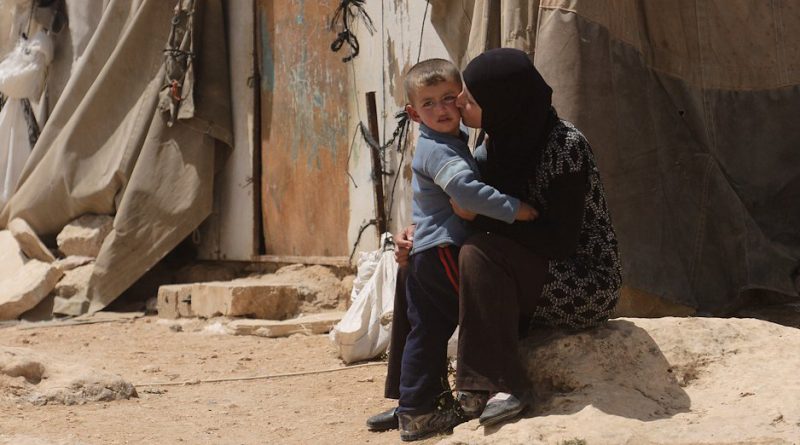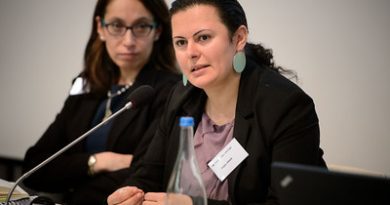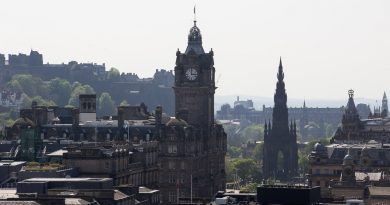OPINION: How Should the International Community Respond to the Israel-Hamas War?
Esther Edohwokui
Staff Writer
The International Community cannot remain silent when international humanitarian law (IHL) is not being upheld and complied with. Reports from CNN explain how on October 7, Palestinian militants from Gaza, known as the group Hamas which was named a foreign terrorist organization by the US State Department in October 1997, launched thousands of rockets into Israel and infiltrated the border, killing over 1,400 people including civilians and taking 200 hostages – the deadliest attack on Jews since the Holocaust.
In response, Israel declared war and commenced airstrikes in Gaza, while tightening its blockade to cut off fuel and water supplies to the population. A humanitarian disaster now looms as Gaza’s 2 million residents face starvation and hospitals lose power, per Red Cross warnings. With the dense 140-square-mile territory already under a crippling Israeli-Egyptian blockade since 2007, Gaza faces an unprecedented humanitarian crisis amid the conflict.
United Nations (UN) secretary-general, Antonio Guterres, described the situation as being on “the verge of the abyss in the Middle East,” and urged that IHL be upheld and respected, reports CNN. There have been some arguments made that this war should be resolved through the United Nations, namely the United Nations Security Council (UNSC). However, bodies like this, although created with a premise of neutrality, become heavily politized when key stakeholders have vested interests in the outcome. Justice and humanitarian prospects take a backseat while politics and national interests drive the conversation.
Applying diplomatic and economic pressure through International Organizations (IOs) such UNSC prove to be difficult with the U.S. on one side opposing China and Russia. Reuters reports a UNSC resolution that called for a humanitarian pause in the conflict between Israel and Hamas and would allow access to humanitarian aid to the Gaza Strip was vetoed by the U.S. on October 18. There have been many negative responses to this veto including Russia’s Ambassador to the UN, Vasily Nebenzya, who claims “We have just been witnesses once again of hypocrisy and the double standards of our American colleagues.”
If such bodies refuse to provide resolutions that would otherwise limit civilian casualties and address impunity from IHL, then engagement with civil society and human rights organizations monitoring the situation on the ground is necessary. Albania’s representative from the earlier UNSC meeting claims that it is the most vulnerable who “bear the brunt of terrible decisions taken by powerful men.” Amplifying voices that are drawing attention to the human impact are high profile Non-Governmental Organizations (NGOs) like Amnesty International or journalists reporting from Gaza would pressure political leaders.
Independent organizations such as the International Committee of the Red Cross (ICRC) have already taken action in providing humanitarian aid to both the Israelis and Palestinian casualties. Mirjana Spoljaric, president of the ICRC, emphasized that all sides need to exercise restraint to protect civilian lives saying, “Civilians always pay the highest price in conflict. At this critical moment, we urge the parties to respect their obligations under international humanitarian law…”
On the other side of this there needs to be advocating for transparent, independent investigations into alleged violations of international law and human rights abuses, as well as demanding accountability for war crimes. The international community is not comprised solely of the UNSC. There are other entities and bodies within this international structure that can utilize their resources to affectively respond to the Israel-Hamas war. International organizations were created with the sole purpose of achieving global governance. A key aspect of global governance is addressing impunity from the law to serve as a deterrent for other states in present and/or future war conflicts.
Utilizing the United Nations General Assembly (UNGA) would be a good way to bypass security council vetoes and push for the upholding of IHL and humanitarian ceasefire. Although legally non-binding, it would serve as a powerful symbolic condemnation and signal of international priorities. The United Nations Human Rights Council (UNHRC) could also launch an inquiry into the alleged abuses and violations of IHL. Gathering evidence and documenting these violations, by all sides, can alter the behavior of all parties and initiate compliance with international norms. All these examples are ways in which the international community can work together to undermine IHL violations and demand a humanitarian cease-fire.
Putting a band aid on the situation by offering humanitarian aid through money is not enough, as Reuters reports Biden has recently pledged $100 million in United States funding for humanitarian aid in Gaza and the West Bank. There needs to be action taken in the form of a cease-fire to protect civilians’ lives as well as their resources. By applying pressure to political leaders through these organizations, the way we handle this situation can serve as an example in future conflicts. There needs to be condemnation and accountability for violations of IHL and it needs to start now.
Image courtesy of People’s Dispatch



